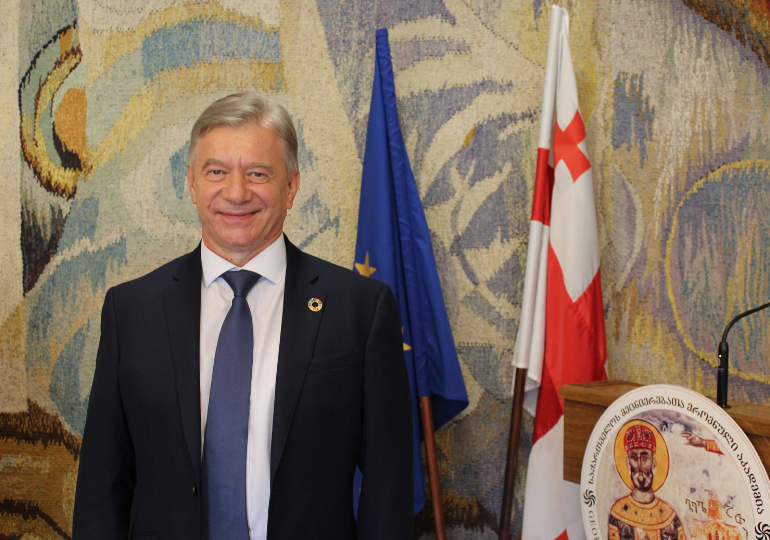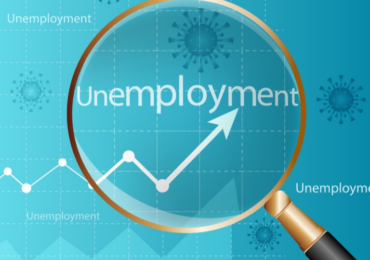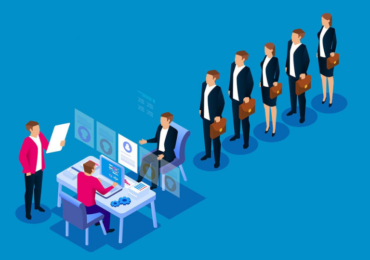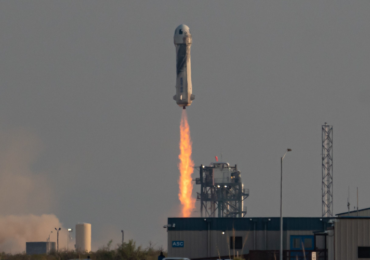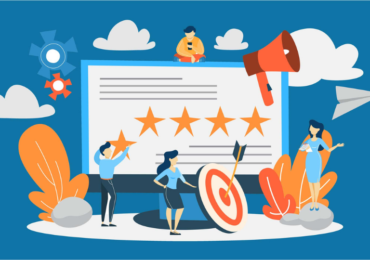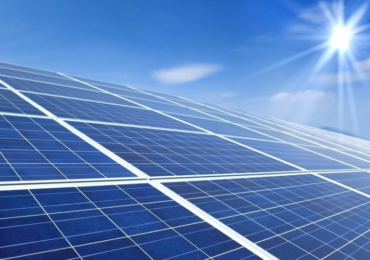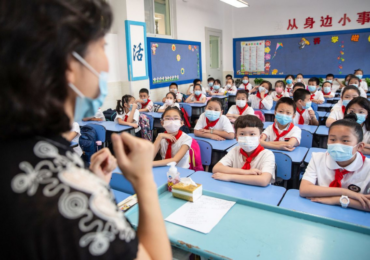Interview with Mr Dariusz Edward Prasek, Doctor in Environmental Engineering, Member of the United Nations Advisory Board on Circular Economy, Independent Expert on Development Financing at IDB Invest, International Expert in Environmental, Social and Governance Areas. Former Director of Operations in Environmental and Sustainability Department of the European Bank for Reconstruction and Development
Circular economies are the future, and one day, every country will have to transition to them. Georgia has taken some steps, but it has a long way to go. With the support from the Government of Sweden, Georgia is currently implementing an awareness program aiming at promoting the Circular Economy. The program is being implemented by CSO Georgian Society of Nature Explorers “Orchis”. The program provides recommendations to various groups of stakeholders, including policy makers, financial institutions and project promoters how to accelerate the implementation of circular economy principles at various levels of economic activity. The next step in the accelerated transition to circularity is mapping how circular the existing economy of Georgia is. The implementation of the program is led by an International Expert in the Circular Economy, member of the United Nations Advisory Board on Circular Economy – Dr. Dariusz Prasek supported by a National Expert in Sustainable Development and a group of local Georgian Experts with a sound knowledge of the Georgian economy and environmental, social and governance issues. In addition, the Government of Georgia has formed an inter-ministerial working group which includes members from different government departments (including business/industry and environment), to ensure broad expertise as well as early buy-in from these key departments. Dr. Dariusz Prasek a former Director of Operations in Environmental and Sustainability Department of the EBRD visited Georgia and Forbes Georgia spoke with him.
Mr. Prasek, your visit to Georgia is related to the country’s transition to a circular economy. We know that your experience includes about 4,000 investment projects implemented in various fields. What steps do you think need to be taken to implement circular economy projects globally and specifically in Georgia?
Transitioning to a circular economy requires the cooperation of many players – including policy makers, businesses, municipalities, academics, and consumers. It is a complex transition, but it is also a crucial one. Adopting a circular economy is not a choice. It is something we will all need to embrace at some point. The sooner we do this, the better we will be in the future. As for the projects themselves, they are the most important because this is actual implementation. But before that we must take several steps which are needed to developing such projects. First, it is about raising awareness. So, all the aforementioned stakeholders should be fully aware of the risks of the current operations involving a linear economy and the benefits of going circular.
We need to disseminate this information to make everyone aware. Who should be aware? Those who make the policies. Then we must make sure our financial community is aware because without financing, you cannot implement these projects. After this, we need to make those who provide the areas and facilities aware – the municipalities or regions themselves – that circularity is actually to their benefit. Finally, we must make consumers aware that if they have a product, which they throw away very quickly, they have to buy a new one. This is not good for anyone. It is costly. We need to raise awareness; we need to create policies. The Georgian government has already created some policies that are positive, like the Extended Producer Responsibility (EPR). The EPR is an approach of the environmental policy where the producers and importers of certain products are responsible to manage the wastes generated after the use of their products, and among them to carry related costs. The purpose of the EPR is to improve environmental performance of the waste management system and to mobilize financial resources needed to ensure the reuse, separate collection, recycling, recovery and/or other treatment of waste. This has worked in other countries with producers taking responsibility for what they produce.
The transition to a circular economy in Georgia has been discussed for some time. This issue is gradually becoming more relevant. What stage do you think we are at now? Let’s compare Georgia to other countries in the region…
Certain elements of the circular economy existed in the past, but it is still a new concept. It started to be a specific program from 2015 when the European Union declared this as one of their flagship projects. Georgia, as an associate country, has taken a few steps already. And now, with the help of donors – like the Swedish government – there is an ongoing program of raising awareness. Moreover, the Georgian Government already implemented a certain regulatory framework. In addition, the Georgian Government has also asked for international cooperation. A strategy should be developed for the country that is adopted by the parliament and then implemented. We are currently mapping how circular Georgia is, and we have to be realistic. In general, the world is only 8.6% circular. It was 9.2% two years ago. The most advanced countries, like the Netherlands or Scandinavian countries – Finland and Sweden, are about 20-22% circular. When we have the result of the mapping in Georgia, we cannot expect that it will be 50% circular. Anyway, we are still in the process of doing the mapping. After that, Georgia will have to decide what the priority sectors are for the country to develop a circular economy. This could be the agribusiness industry, for example, which is an especially important sector for Georgia. After that Georgia has to define their own ambition, where the country wants to be in 2030 and 2050, and then how advanced Georgia wants to be in the whole region.
As for now, Georgia is the leader and your neighboring countries are lagging. I think that what we are working on and developing here in Georgia could serve as a good example for others in the region. To sum up your question, Georgia has taken good steps. Georgia formed an interdisciplinary group of experts between various ministries working together with international experts to develop a program. I see passionate, serious people here who are actually doing things in the right direction.
You mentioned that Georgia is leading, you mean in the region?
In the Caucasus it is definitely leading, and Georgia is also much more advanced than Ukraine, for example, where there are only initial talks about circularity. Generally, I should mention that countries have specific sectors that they are better in. Georgia should focus on sectors that have the highest potential to benefit from the circularity. If you compare Georgia to other countries, you should also look at similar sized and similar geographic locations. For example, Slovenia. Slovenia is a very advanced country with a circular economy. It is a mountainous country. It is a country with access to the sea. There are a lot of similarities to Georgia. Moreover, there are countries, like Finland, who are at the cutting edge of developing biotechnologies. This is also something we are currently discussing, as Georgia has the potential to utilize some of these technologies. This is not a remarkably simple answer. But Georgia is clearly a leader in the region, and Georgia has the potential to benefit from using others as examples and by utilizing cutting-edge technology to have an accelerated transition to circularity and to accelerate the rebuilding of the economy after the pandemic.
Do you anticipate any financial barriers to accelerate the transition to a circular economy?
All financial institutions should be involved in the transition process. At this stage, most international financial institutions have special credit lines, special niches for financing the circular economy. Also, at a European level, there is a group on financial issues working on various types of products and guarantee schemes, which will better manage the risk associated with circularity. But there is also room for the public sector, in terms of providing incentives.
If you are targeting small and medium-sized businesses, they need a guarantee of obtaining financing, but they also need advice. Another thing is advisory services, think tanks, which could provide the necessary information. You have several elements that can be conducive to accelerating implementation. But the financial sector is essential and there is a lot of work being done here. A circular economy is not a luxury anymore, it is the future.
What is the role of businesses in the process of transition to a circular economy?
Businesses play a crucial role, but I would not say that others do not. But businesses are the most important because they implement real measures that are up and running. It is important that businesses try to understand the concept of circularity. The first thing that they understand is the scarcity of resources if certain resources are lacking, and this is already a problem for some metals. For instance, the ones used in modern technology – like in mobile devices. The materials that they use are so scarce that very shortly there will be disruption in their supply. If there is supply disruption, what do you face? You face increased prices. You face potential trade barriers imposed by governments. Finally, if you have trade barriers and if you have an increase in prices, then a business cannot operate. Businesses should realize that they must think about how to utilize recycled resources and recovered materials. Beyond any doubt, it has been proven that in many industries, using recycled materials is less costly than using fresh materials.
So, this is the first step that needs to change in terms of business models. They have entrenched practices where they make a product, sell the product and that is the end of their responsibility. The moment they face extended responsibility under the current or future legislation it will help the whole process.
Legislative framework is also essential in this process. How have other countries started and where is Georgia in the process?
Now we have a mapping process in Georgia, and we are developing a strategy for the country. In parallel, there is an attempt with financial institutions, particularly through an environmental partnership with the Eastern Europe Energy Efficiency and Environment Partnership (E5P), and other associated financial institutions, like EBRD and NEFCO who are interested in supporting Georgia’s transition to circularity. They are particularly interested in smaller municipalities, not Tbilisi, Kutaisi, or Batumi, who have more of a problem with attracting financing. We are currently attempting to identify concrete projects that will serve as case studies.
Georgia is quite advanced. As I mentioned, the European Union adopted the package in 2015, six years ago is not that long. Some countries, who embarked on this quite early, made some mistakes. Georgia has the benefit of avoiding the same mistakes. But there are some countries that are really advanced, for example, Finland or the Netherlands, and in hindsight, we can see where they made some mistakes or did not choose the optimal path. Georgia has got broad support. So, I think that Georgia is pretty advanced now, but there is still a long way to go.
Approximately 900,000 tons of waste is generated in Georgia every year, of which more than 75% is in landfills. If we compare Georgia to Sweden, we see that there is only 1% of landfill waste in Sweden. Whose experience can Georgia use to solve this problem?
Georgia has a long way to go given that you are not recycling yet. Sweden by the 1980s had already started a state program where they embraced recycling. They abandoned disposable packaging. People go to supermarkets with their own containers to buy things. This is something that was initiated about forty years ago. You cannot compare Georgia to Sweden. But look at the countries that were doing the same thing Georgia is doing now. Once they introduced the policy requirements and then gave the opportunity to industry to manufacture containers for separate collections of various products, the change was accelerated. But obviously it starts with legal action. It starts with giving industry opportunities to adjust, then implement and enforce it.
Do you agree with the opinion that the move to a circular economy can be especially powerful for lower and middle-income countries?
I do agree with this. First, you know, we all need to get moving. Countries that are low to medium income countries without developed sectors are much easier to change, as they are not so entrenched in their operational practices and that there is great inertia regarding changing operational models. Also, it is much easier to introduce policies and implement the measures very quickly compared to high income countries where things were done the same way for many years. To be honest, it is a myth that high income countries can do things better.
Finally, I would like to ask you about the role of the population. There is no doubt that some steps are needed to raise awareness amongst the general public. What should be done here?
Educating people, explaining the real cost of throwing things away is something that is particularly important. But what is most vital is to introduce this into the curriculum and educate children on this. They are like sponges and absorb things quickly. There are very well-advanced educational programs. Finland is probably the most advanced. There is a Finnish innovation fund called SITRA, which has numerous educational programs targeting preschools and schools, secondary schools, and universities. Teaching children and students about these measures will ensure that they are on board, and they will implement these measures in the future.
